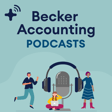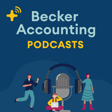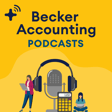
Balancing the Future Ep. 24 - Blueprint for Belonging: A Guide to Human-Centric Work with Nzinga Shaw
Nzinga Shaw, trailblazing Chief Diversity & Inclusion Officer for the NBA, NFL and Starbucks, recounts her path from Spelman English major to global DEI authority. Shaped by educator parents and civil-rights stories, Shaw explains how sports can bridge racial divides, why the pandemic elevated employee well-being, and how flexible, trust-based cultures outperform rigid mandates. Join this discussion with host Chris Mitchell as we explore ideas around building trust, using data-driven inclusion, and cultivating focus, courage, and entrepreneurial thinking in the next generation of talent.
Earn CPE by listening to this podcast through a Becker Prime CPE subscription.
Listen to this episode through your Becker LMS platform to complete practice questions, pass the final exam, and earn CPE credit.
Already a Becker Prime CPE customer? Login here.
Have access to Becker CPE through your employer? Earn CPE credit for this podcast however you consume Becker CPE, either through your company’s LMS or via the Becker platform. Not sure where to log in? Check with your CPE admin.
Learn more about CPE Podcasts from Becker: https://www.becker.com/cpe/becker-podcasts


